Search Results for: seek
Skip to resultsCan’t find what you’re looking for? Visit our FAQ page.
5,118 results for: seek
-
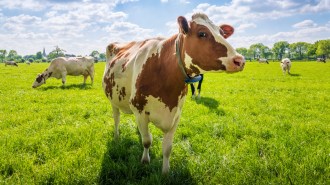 Climate
ClimateCow poop emits climate-warming methane. Adding red algae may help
Adding a type of methane-inhibiting red algae directly to cow feces cut down methane emission from the poop by about 44 percent, researchers report.
-

From our brains to gravity, how science surprises us
Editor in chief Nancy Shute discusses how science unravels mysteries, such as missing chunks of brain, gravity's strength and the start of the Viking era.
By Nancy Shute -
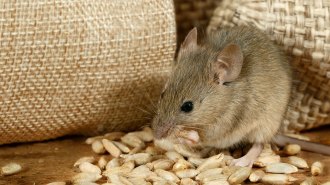 Animals
AnimalsCamouflaging wheat with a wheat smell could be a new approach to pest control
Wheat fields coated in wheat germ oil confuse the noses of mice, reducing seed loss by more than 60 percent, a new study finds.
-
 Psychology
PsychologyBoys experience depression differently than girls. Here’s why that matters
Boys’ depression often manifests as anger or irritability, but teen mental health surveys tend to ask about hopelessness.
By Sujata Gupta -
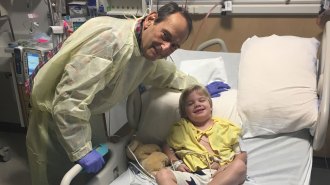 Genetics
GeneticsMost of today’s gene therapies rely on viruses — and that’s a problem
The next big strides in gene therapy for rare diseases may come from CRISPR and new approaches to delivery.
-
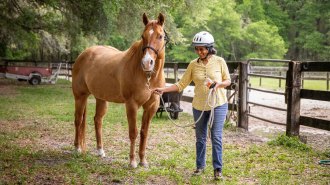 Tech
TechHow understanding horses could inspire more trustworthy robots
Computer scientist Eakta Jain pioneered the study of how human-horse interactions could help improve robot design and shape human-robot interactions.
-
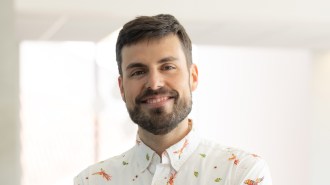 Physics
PhysicsJulian Muñoz has a ‘ruler’ that could size up the early universe
The measurement tool could lay out a distance scale for cosmic dawn —and offer clues to the nature of dark matter.
-
 Genetics
GeneticsDaphne Martschenko is a champion for ethical, inclusive genomics research
A bioethicist focused on the genomics revolution, Daphne Martschenko fosters open discussion through “adversarial collaboration”
-
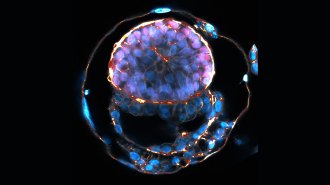 Humans
HumansHuman embryo replicas have gotten more complex. Here’s what you need to know
Lab-engineered human embryo models created from stem cells provide a look at development beyond the first week. But they raise ethical questions.
-
 Science & Society
Science & SocietyDeliberate ignorance is useful in certain circumstances, researchers say
The former East German secret police, the Stasi, spied on people for years. But when given access to the Stasi files, most people didn’t want to read them, researchers found.
By Sujata Gupta -
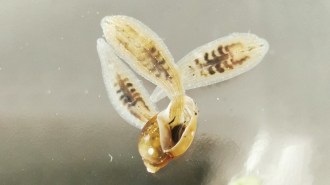 Animals
AnimalsFreshwater leeches’ taste for snails could help control snail-borne diseases
A freshwater leech species will eat snails, raising the possibility that leeches could be used to control snail-borne diseases that infect humans and livestock.
-
 Climate
ClimateThere’s good and bad news with California’s electric vehicle program
The electric vehicle program is reducing carbon dioxide emissions but also shifting the pollution burden to the state’s most disadvantaged communities.